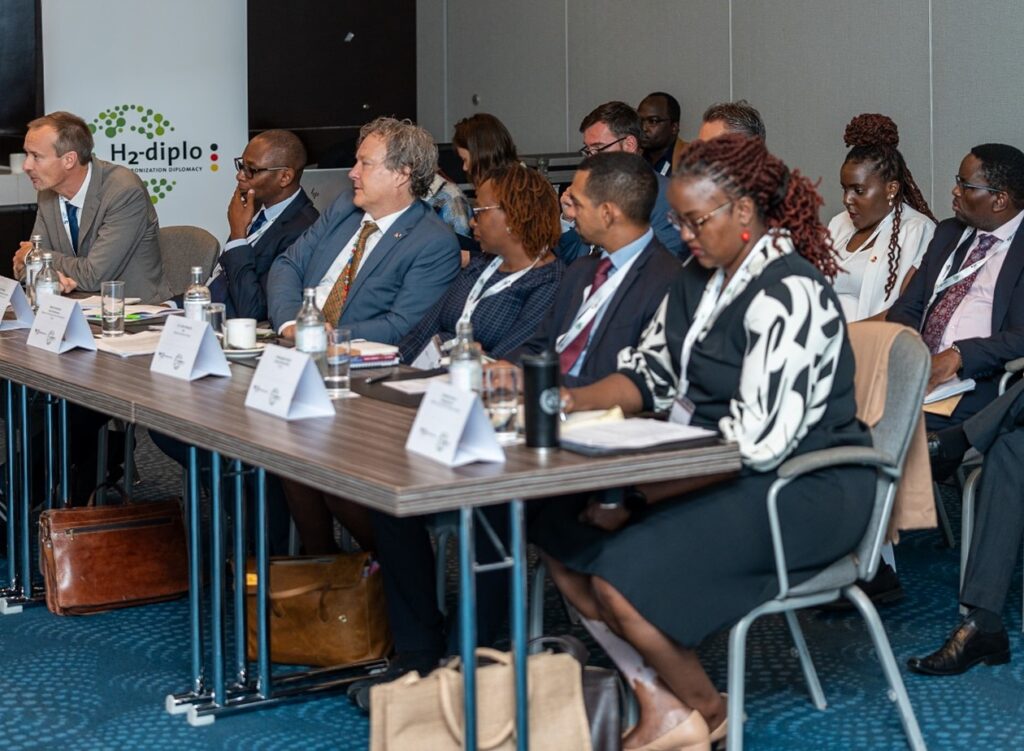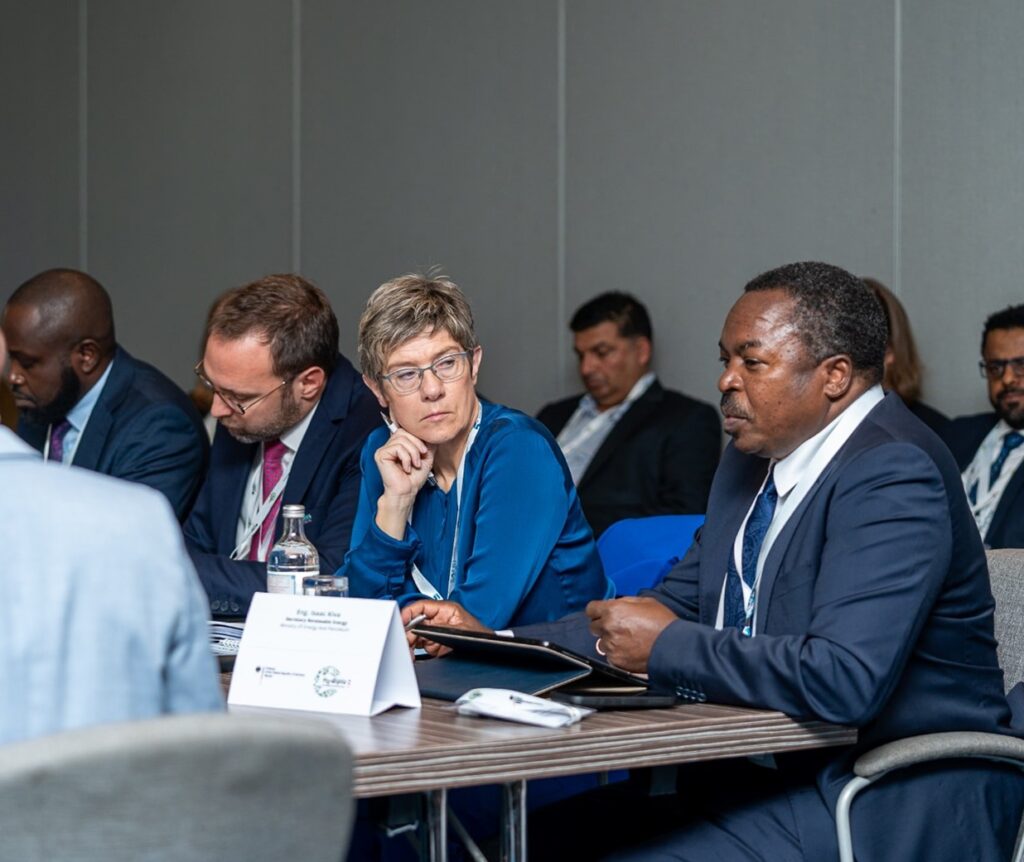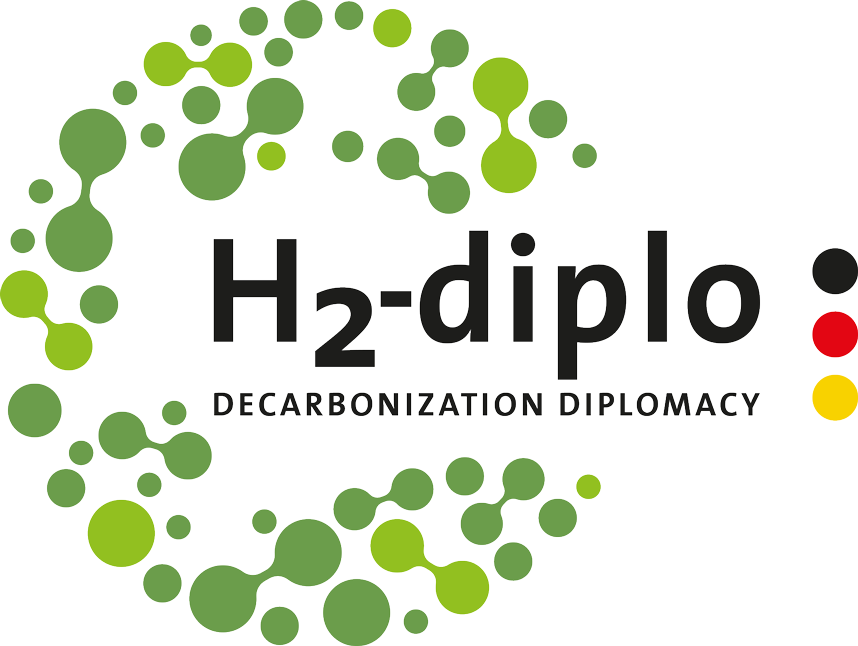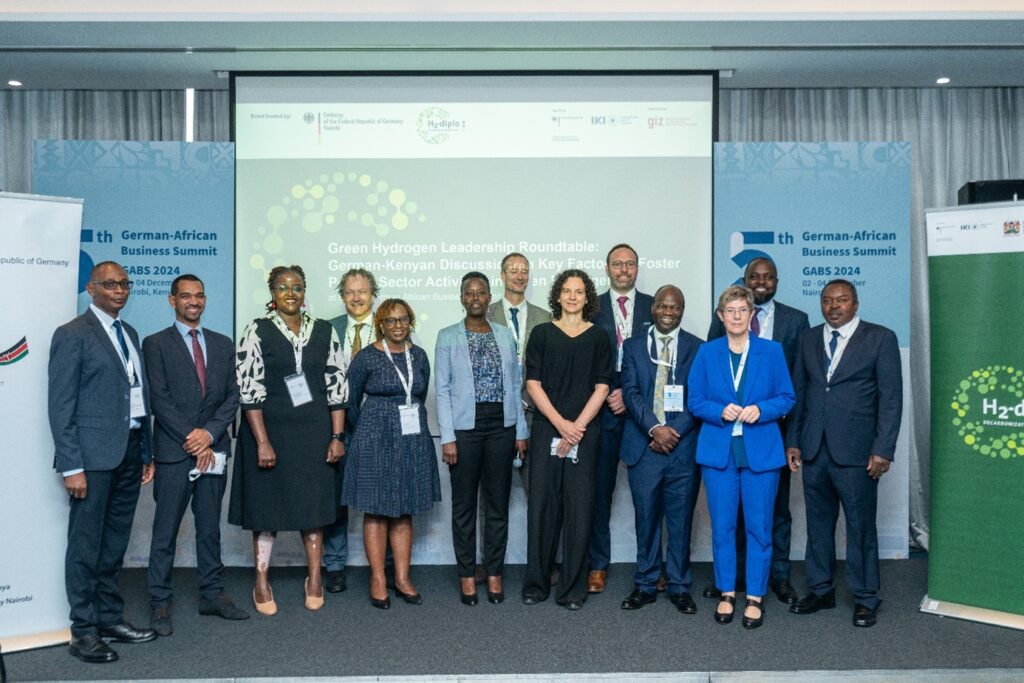The discussion highlighted the success factor of the German-Kenya cooperation which has been instrumental in preparing and growing Kenya’s green hydrogen market since 2020. The session called for more cohesion and coordination amongst partners and the need to derisk green hydrogen investments to make them bankable.
On the 3rd December 2024, the Kenya Hydrogen Diplomacy Office (H2-diplo) and the Embassy of the Federal Republic of Germany in Kenya jointly hosted a Green Hydrogen Leadership roundtable at the 5th German African Business Summit (GABS 2024). The 3-day summit which took place from the 2rd– 4thDecember 2024 is held every two years to provide a uniting platform for leading businesses, investors and policy makers to advance economic ties between Germany and Africa. The summit highlighted topics on financing solutions, agricultural technology, energy and renewable resources and raw materials which included high-level networking sessions, presentations, podium discussions and side events of best practice and success stories of unity.
The closed-door roundtable, conducted under the Chatham House Rules titled: ‘German Kenyan discussion on Key Factors to Foster Private Sector Activities’ featured high-level representatives.


Key highlights of the discussion included: Firstly, the achievements of the German-Kenyan cooperation through programs such as the German Training week for project developers and the PtX trainings to political decision makers that have strengthened Kenya’s GH2 ecosystem. Secondly, strategic Partnerships such as the support from GIZ and the EU delegation that have contributed to the development of Kenya’s Green Hydrogen Strategy and Roadmap and the Green Hydrogen and its derivatives guidelines. In addition, the Financial Support through the German government and the KfW Group have pooled promotional and financing instruments on the PtX platform to promote investment in the sector.
Some of the challenges that were identified in the roundtable include the high cost of electricity-that contributes to almost 60% of the cost of hydrogen production, the risk of regional and international competition and the barriers of first mover disadvantage.
The roundtable culminated with key recommendations on how to move Kenya’s green hydrogen market forward. These recommendations include the need to derisk green hydrogen investments collectively by the public, private and financial sectors. Continued support from cooperation agencies was also called upon to facilitate sectoral dialogues and matchmaking amongst the stakeholders. Finally, fostering strategic partnerships and working cohesively across the sectors was considered key in tacking the complexity of the GH2 sector.
For more news about the H2-diplo activities, follow us on LinkedIn: H2-diplo – Decarbonization Diplomacy | LinkedIn

